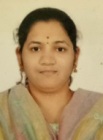 About Department
About Department
The Electronics and Communication Engineering Department was established in year 2005. The Department started with under graduate programmes in Electronics and Communication Engineering and later added Post Graduate programmes with specialization in VLSI system Design.It aims to deepen the knowledge and skills of the students on the basic concepts and theories that will equip them in their professional work involving analysis, systems implementation, operation, production, and maintenance of the various applications in the field of Electronics and Communications Engineering.The department has a blend of experienced and well qualified faculty having obtained Masters and Ph.D. degrees from premier institutes and have distinction of working with established national and international research organization.
|
|
|
 |
Dr.SK.Umar Faruq
|
VISION
- To be a centre of learning in the field of Electronics and Communication Engineering to develop competent professionals for industry and to fulfill the needs of the society.
MISSION
- To impart quality education through effective teaching learning process
- To provide essential inter-disciplinary technology to make the students readily employable
- To inculcate entrepreneurial skills to provide socially relevant and sustainable solutions
PROGRAM EDUCATIONAL OBJECTIVES (PEOS)
- PEO1: The graduates will be able to adopt emerging technology for career development
- PEO2: The graduate will be able to develop professional skills and sense of social responsibility that paves them a way to secure key position
- PEO3: The graduate will have the capability to analyses real life problems of the society and produce innovative solutions
PROGRAM SPECIFIC OUTCOMES
- PSO1: Demonstrate proficiency in use of software and hardware required to practice electronics and communication profession
- PSO2:To exhibit the ability to design and develop complex systems in the areas of IoT based Embedded Systems, Advanced Signal and Image Processing.
PROGRAM OUTCOMES:
PO 1. Engineering Knowledge: Apply the knowledge of mathematics, science, engineering fundamentals, and an engineering specialization to the solution of complex engineering problems.
PO 2. Problem Analysis: Identify, formulate, review research literature, and analyze complex engineering problems reaching substantiated conclusions using first principles of mathematics, natural sciences, and engineering sciences.
PO 3. Design / development of Solutions: Design solutions for complex engineering problems and design system components or processes that meet the specified needs with appropriate consideration for the public health and safety, and the cultural, societal, and environmental considerations.
PO 4. Conduct investigations of complex problems: Use research-based knowledge and research methods including design of experiments, analysis and interpretation of data, and synthesis of the information to provide valid conclusions.
PO 5. Modern tool usage: Create, select, and apply appropriate techniques, resources, and modern engineering and IT tools including prediction and modeling to complex engineering activities with an understanding of the limitations.
PO 6. The engineer and Society: Apply reasoning informed by the contextual knowledge to assess societal, health, safety, legal and cultural issues and the consequent responsibilities relevant to the professional engineering practice.
PO 7. Environment and sustainability: Understand the impact of the professional engineering solutions in societal and environmental contexts, and demonstrate the knowledge of, and need for sustainable development.
PO 8. Ethics: Apply ethical principles and commit to professional ethics and responsibilities and norms of the engineering practice.
PO 9. Individual and team work: Function effectively as an individual, and as a member or leader in diverse teams, and in multidisciplinary settings.
PO 10. Communication: Communicate effectively on complex engineering activities with the engineering community and with society at large, such as, being able to comprehend and write effective reports and design documentation, make effective presentations, and give and receive clear instructions.
PO 11. Project management and finance: Demonstrate knowledge and understanding of the engineering and management principles and apply these to one’s own work, as a member and leader in a team, to manage projects and in multidisciplinary environments.
PO 12. Life-long learning: Recognize the need for, and have the preparation and ability to engage in independent and life-long learning in the broadest context of technological change
| Program name | R22 Regulation COS | R20 Regulation COS | R18 Regulation COS |
| ECE | VIEW | VIEW | VIEW |










































